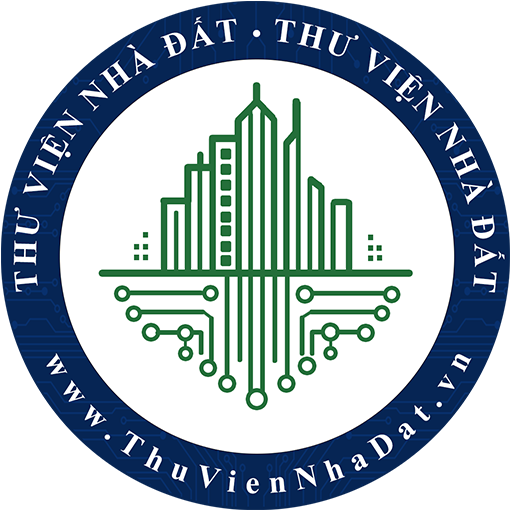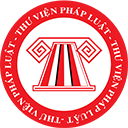|
BỘ NGOẠI GIAO
-------
|
CỘNG HÒA XÃ HỘI
CHỦ NGHĨA VIỆT NAM
Độc lập - Tự do - Hạnh phúc
---------------
|
|
Số:
49/2016/TB-LPQT
|
Hà Nội, ngày 17
tháng 08 năm 2016
|
THÔNG BÁO
VỀ
VIỆC ĐIỀU ƯỚC QUỐC TẾ CÓ HIỆU LỰC
Thực hiện quy định tại Điều 56 của
Luật Điều ước quốc tế năm 2016, Bộ Ngoại giao trân trọng thông báo:
Hiệp định giữa Chính phủ nước Cộng hòa xã hội chủ
nghĩa Việt Nam và Chính phủ nước Cộng hòa Xu-đăng về việc miễn thị thực cho người
mang hộ chiếu ngoại giao, hộ chiếu công vụ hoặc hộ chiếu đặc biệt, ký tại
Hà Nội ngày 30 tháng 3 năm 2015 có hiệu lực từ ngày 06 tháng 9 năm 2016.
Bộ Ngoại giao trân trọng gửi bản sao Hiệp định theo
quy định tại Điều 59 của Luật nêu trên./.
|
|
TL. BỘ TRƯỞNG
KT. VỤ TRƯỞNG
VỤ LUẬT PHÁP VÀ ĐIỀU ƯỚC QUỐC TẾ
PHÓ VỤ TRƯỞNG
Nguyễn Văn Ngự
|
AGREEMENT
BETWEEN
THE GOVERNMENT OF THE SOCIALIST REPUBLIC OF VIET NAM AND THE GOVERNMENT OF THE
REPUBLIC OF SUDAN ON THE ABOLITION OF VISA REQUIREMENT FOR HOLDERS OF
DIPLOMATIC, OFFICIAL OR SPECIAL PASSPORTS
The Government of the Socialist Republic of Viet
Nam and the Government of the Republic of Sudan. (hereinafter referred to as
“Contracting Parties”);
Desiring to strengthen the friendly relations and
cooperation between the two countries;
Aiming to facilitate entry of the citizens of both
Contracting Parties, holders of diplomatic, official or special passports, into
the territories of their respective countries;
Have agreed as follows:
ARTICLE
1
This Agreement is applicable
to holders of valid diplomatic, official or special passports of both
Contracting Parties.
ARTICLE
2
Citizens of each Contracting
Party holding valid diplomatic, official or special passports shall be exempted
from visa requirements to enter, transit, exit and stay temporarily in the territory
of the other Contracting Party for a period not exceeding ninety (90) days
within any one hundred eighty (180) days period, reckoned from the date of
first entry.
ARTICLE
3
1. Citizens of each
Contracting Party, holding valid diplomatic, official or special passports, who
are appointed as members to the diplomatic, consular missions or
representations of international organizations accredited in the territory of
the other Contracting Party, shall be exempted from visa requirements to enter,
exit and transit the territory of the other Contracting Party for the period of
the assignments.
2. The provisions of the first paragraph of this
Article shall also be applied to the spouse and under 18 year-old children of
the individuals mentioned in the first paragraph provided they hold a valid
diplomatic, official or special passports.
3. For the implementation of the first paragraph of
this Article, notification by the international organizations concerning the
appointments of citizens of the Contracting Parties shall be considered
sufficient.
ARTICLE
4
1. Citizens of each
Contracting Party mentioned in the Article 1 may enter, exit, transit the
territory of the other Contracting Party using the border crossings designated
for international passenger traffic.
2. While crossing the State border, citizens of
each Contracting Party mentioned in Article 1 are obligated to comply with the
laws and regulations of the other Contracting Party.
ARTICLE
5
1. With the exclusion of the
conclusion of an agreement on the employment of family members of the
diplomatic, consular missions or representation of international organizations
accredited in the territory of the other Contracting Party, visa exemption does
not grant the citizens of the Contracting Parties mentioned in Article 1 the
right to work in the territory of the other Contracting Party.
2. Annotated visas regulating work, study,
research, education, family reunion and long term residence in the territory of
the each Contracting Party are subject to the provisions of the national
legislation of the Contracting Parties.
The application requirements for annotated visas
(place of application, necessity of supportive documents etc.) by the citizens
of each Contracting Party are subject to the national legislation of the Contracting
Parties.
ARTICLE
6
1. The Contracting Parties
shall exchange through diplomatic channels specimens of the valid diplomatic,
official or special passports, no later than sixty (60) days prior the entry
into force of this Agreement.
2. The Contracting Parties shall notify each other
through diplomatic channels of any changes in the diplomatic, official or
special passports mentioned in the Article 1 and deliver the specimens of these
passports thirty (30) days prior to their circulation.
ARTICLE
7
Either Contracting Party has
the right to deny the entry into its territory of the citizens of the other
Contracting Party mentioned in the Article 1 or shorten the period of their
stay in the country, without stating any reason.
ARTICLE
8
1. Each Contracting Party may
temporarily suspend this Agreement wholly or partially, under extraordinary
circumstances (state of war, epidemic diseases, natural disasters, for the
reasons of national security, protection of public order and public health,
etc…)
2. Each Contracting Party shall notify the other
Contracting Party about its decision of suspension and re-implementation of
this Agreement through diplomatic channels no later than 12 hours before the
entry into force of these measures.
ARTICLE
9
Any dispute arising from the
implementation of the provisions of this Agreement shall be resolved through
diplomatic channels.
ARTICLE
10
This Agreement shall be
amended by mutual consent of the Contracting Parties through exchange of notes,
which shall be regarded as the integral part of this Agreement. The exchanged
notes shall enter into force according to the same legal procedure
prescribed under the first paragraph of Article 11.
ARTICLE
11
1. This Agreement shall
enter into force on the thirtieth (30th) day of the receipt of the
last notification by which the Contracting Parties notify each other of the
completion of internal legal procedures that are necessary for its entry into
force.
2. This Agreement is of unlimited duration and
shall remain valid unless one of the Contracting Parties notifies the other
Party in written form through diplomatic channels of its decision to terminate
it. In that case, the Agreement shall be terminated six (06) months after the
other Party has received the said notification.
In witness whereof, the undersigned being duly
authorized by their respective Government have signed the present Agreement.
Done at Ha Noi on March 30th, 2015, in
two originals in English language.
|
The Government
of the Socialist
Republic of Viet Nam
VU HONG NAM
Vice Minister of Foreign Affairs
|
The Government
of the
Republic of Sudan
SAYED ALTAYED AHMED
Ambassador of the Republic of Sudan to the S.R of Viet Nam
|

